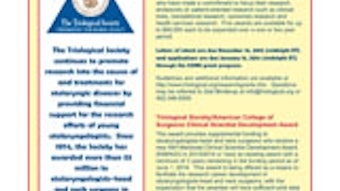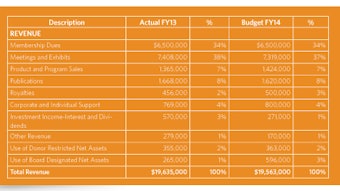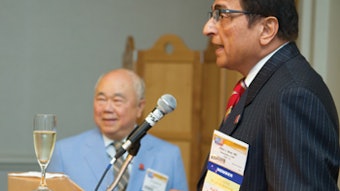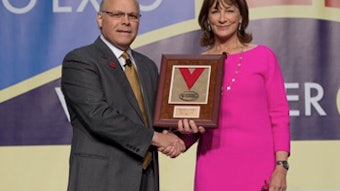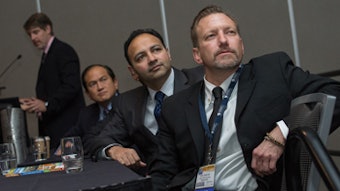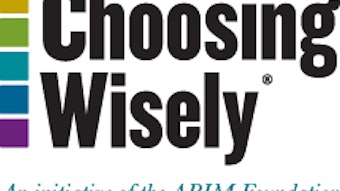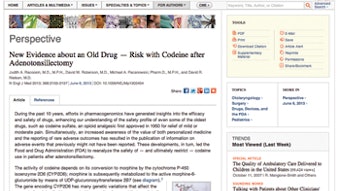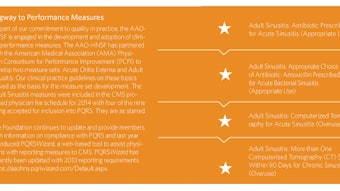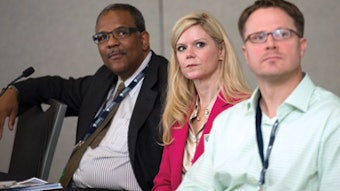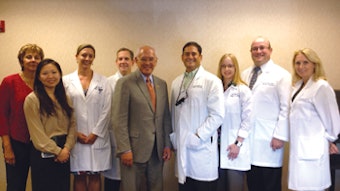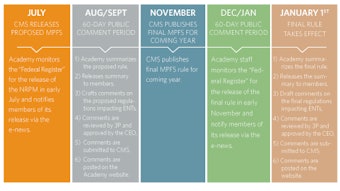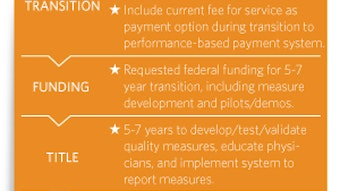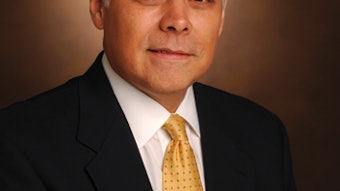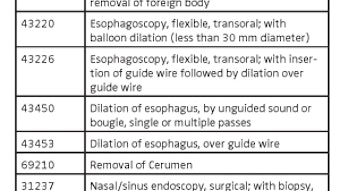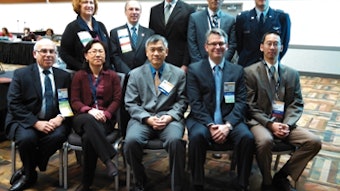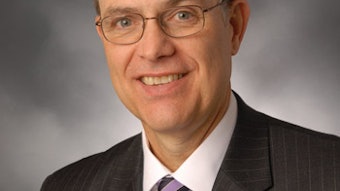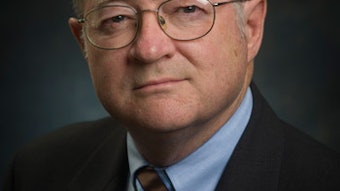2013 Annual Report: Advocacy
As the “Advocacy” arm of the Academy, the Health Policy and Government Affairs Business Units strive to serve as a powerful voice regarding legislative, political, regulatory, health policy, and third-party payer policies. We actively seek ways to increase member awareness of and involvement in these critical advocacy activities and employ a flexible, multi-factor approach to advocate for the interests of otolaryngologist-head and neck surgeons. Specifically, the Advocacy group works to: Enhance our legislative outreach efforts to policymakers to advance our legislative priorities. Increase the general awareness and recognition of the specialty by the public and patients. Enhance our grassroots activities to recognize and incentivize member involvement in our legislative and political programs. Integrate health policy-specific priorities, using input from the Physician Payment Policy (3P) Workgroup and Coordinators James C. Denneny, MD, for Socioeconomic Affairs, and Michael Setzen, MD, for Practice Affairs, to maintain our visibility and credibility with national representatives regarding socioeconomic and federal regulatory issues. Advocate for appropriate reimbursement and fair policies with Medicare and private payers, providing members with information and guidance on reimbursement issues encountered at the state and local level. In the Advocacy section of this Annual Report, you will find a detailed assessment of how the Advocacy group has worked to achieve these goals throughout 2013. Notably, the report focuses on our work to permanently repeal the flawed Sustainable Growth Rate (SGR) formula and replace it with a new payment model that incentivizes the delivery of high-quality and efficient healthcare. Other strategic accomplishments included the launch of an In-district Grassroots Outreach (I-GO) program; targeted efforts to increase resident and fellow-in-training involvement in advocacy activities; regulatory advocacy with government agencies such as the Centers for Medicare & Medicaid Services (CMS); and Academy endeavors to obtain positive changes to Medicare and private payer coverage policies for otolaryngology – head and neck surgery procedures.
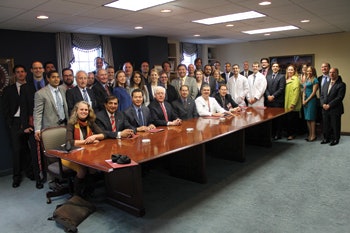 AAO-HNS Members prepared to meet their respective Members of Congress on Capitol Hill.
AAO-HNS Members prepared to meet their respective Members of Congress on Capitol Hill.As the “Advocacy” arm of the Academy, the Health Policy and Government Affairs Business Units strive to serve as a powerful voice regarding legislative, political, regulatory, health policy, and third-party payer policies. We actively seek ways to increase member awareness of and involvement in these critical advocacy activities and employ a flexible, multi-factor approach to advocate for the interests of otolaryngologist-head and neck surgeons. Specifically, the Advocacy group works to:
- Enhance our legislative outreach efforts to policymakers to advance our legislative priorities.
- Increase the general awareness and recognition of the specialty by the public and patients.
- Enhance our grassroots activities to recognize and incentivize member involvement in our legislative and political programs.
- Integrate health policy-specific priorities, using input from the Physician Payment Policy (3P) Workgroup and Coordinators James C. Denneny, MD, for Socioeconomic Affairs, and Michael Setzen, MD, for Practice Affairs, to maintain our visibility and credibility with national representatives regarding socioeconomic and federal regulatory issues.
- Advocate for appropriate reimbursement and fair policies with Medicare and private payers, providing members with information and guidance on reimbursement issues encountered at the state and local level.
In the Advocacy section of this Annual Report, you will find a detailed assessment of how the Advocacy group has worked to achieve these goals throughout 2013. Notably, the report focuses on our work to permanently repeal the flawed Sustainable Growth Rate (SGR) formula and replace it with a new payment model that incentivizes the delivery of high-quality and efficient healthcare. Other strategic accomplishments included the launch of an In-district Grassroots Outreach (I-GO) program; targeted efforts to increase resident and fellow-in-training involvement in advocacy activities; regulatory advocacy with government agencies such as the Centers for Medicare & Medicaid Services (CMS); and Academy endeavors to obtain positive changes to Medicare and private payer coverage policies for otolaryngology – head and neck surgery procedures.

